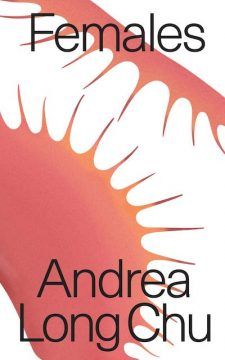Kay Gabriel at the LARB:
 Whether or not she believes them, Chu’s initial theses lead her into a series of chapters in which she theorizes, among other things, gender transition according to the recuperated principles of her personally curated second-wave feminism. Chu quotes her icon Solanas on Candy Darling (1944–1974), an actor and trans woman associated with Warhol’s Factory scene: “[A] perfect victim of male suppression.” (Chu says the epithet was spoken “admiringly”; it’s hard to see how.) Females inclines toward this view, with a twist. Trans women come across as the dupes of patriarchal gender norms, consuming and reproducing the stereotyped and anti-feminist images of the beauty industry. In that mode, Chu describes the YouTube makeup artist Gigi Gorgeous as “in the most technical sense of this phrase, a dumb blonde.” She only recuperates this, frankly, sexist jeer by universalizing its principle: “From the perspective of gender, then, we’re all dumb blondes.” Trading on an alt-right lexicon borrowed from The Matrix, she refers to hormone therapy as “plugging […] back into the simulation.” The charge that gender transition reinforces sexist stereotypes and retrograde gender norms is an old accusation; it doesn’t get more convincing when the person saying it happens to be trans herself. Chu updates this anti-trans feminism by generalizing its theses: she agrees with the accusation that transition sustains the objectification of women, and submits that there’s no way out, for trans people or anybody else.
Whether or not she believes them, Chu’s initial theses lead her into a series of chapters in which she theorizes, among other things, gender transition according to the recuperated principles of her personally curated second-wave feminism. Chu quotes her icon Solanas on Candy Darling (1944–1974), an actor and trans woman associated with Warhol’s Factory scene: “[A] perfect victim of male suppression.” (Chu says the epithet was spoken “admiringly”; it’s hard to see how.) Females inclines toward this view, with a twist. Trans women come across as the dupes of patriarchal gender norms, consuming and reproducing the stereotyped and anti-feminist images of the beauty industry. In that mode, Chu describes the YouTube makeup artist Gigi Gorgeous as “in the most technical sense of this phrase, a dumb blonde.” She only recuperates this, frankly, sexist jeer by universalizing its principle: “From the perspective of gender, then, we’re all dumb blondes.” Trading on an alt-right lexicon borrowed from The Matrix, she refers to hormone therapy as “plugging […] back into the simulation.” The charge that gender transition reinforces sexist stereotypes and retrograde gender norms is an old accusation; it doesn’t get more convincing when the person saying it happens to be trans herself. Chu updates this anti-trans feminism by generalizing its theses: she agrees with the accusation that transition sustains the objectification of women, and submits that there’s no way out, for trans people or anybody else.
more here.
